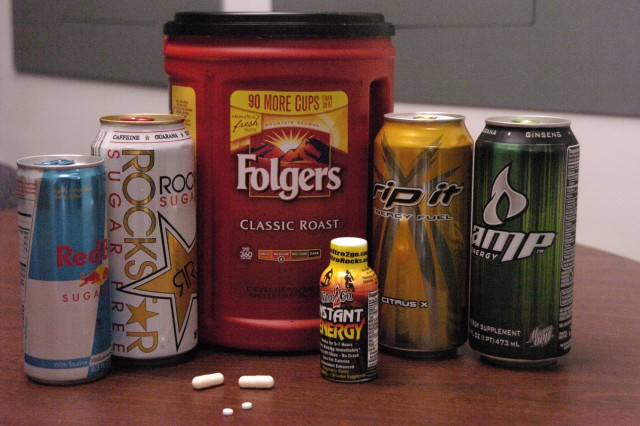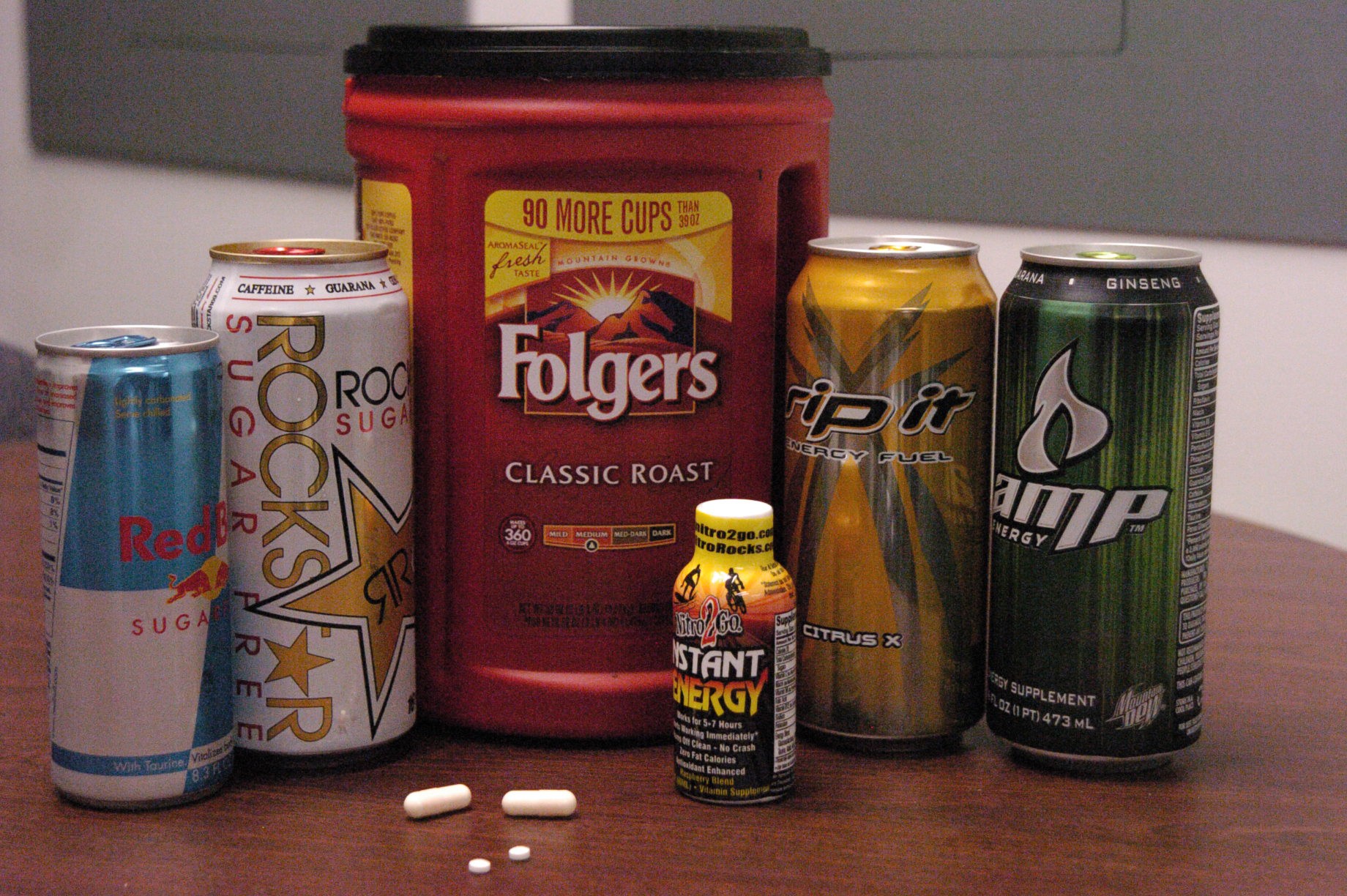FORT RUCKER, Ala., April 21, 2011 -- Energy drinks continue to gain in popularity as people seek to increase their stamina, gain mental focus and consume supplements that are good for the body.
What people may not know is that these energy drinks can harm their bodies and potentially cause adverse affects -- even death -- if mixed with alcohol.
Vodka mixed with an energy drink is a familiar drink at many bars. Those drinking it believe the energy drink is taking the edge off the alcohol so they do not feel as inebriated, but what they do not understand is that there is no affect on the alcohol.
These individuals may be driving impaired in addition to the effects going on in their body, according to Theresa Osteen, Lyster Army Health Clinic Preventive Medicine Services registered dietitian.
"When mixing alcohol and energy drinks, your impairment is off and that's a big deal," said Osteen. "From the health perspective, you have the stimulant that is increasing your heart rate and blood pressure, which can affect your body."
Energy drinks are stimulants and alcohol is a depressant. The combination of effects has been known to be fatal, according to Osteen.
The side effects of a stimulant, such as caffeine, can be increased respiratory rate, increased heart rate, increased alertness and reduced fatigue. Depressants slow brain function, decrease heart rate and blood pressure, dilate blood vessels, impair coordination, motor skills, judgment and memory, and can cause blackouts, she added.
Stimulants found in energy drinks cause dehydration, which can hinder the body's ability to metabolize alcohol. Dehydration, when working in hot environments, can also increase the risk of heat-related illnesses and mixing the two components could also increase the toxicity of the drink, Osteen said.
Stimulants can also give a person the impression they aren't impaired. But no matter how alert someone may feel, the alcohol in the energy drink is raising the blood alcohol concentration in the body, just as if they were having an alcoholic drink, she said.
Once the stimulant's effects wear off, the depressant effects of the alcohol remain. Serious alcohol induced sickness such as vomiting while asleep or respiratory depression can occur. Other effects may include panic attacks, increased anxiety, insomnia, increased gastric acid, bowel irritability and cardiovascular failure.
An alcoholic energy drink is typically malt liquor, vodka or another alcoholic beverage combined with caffeine or other stimulants.
Stimulants that might be included in the mixture could include caffeine, ephedrine, taurine, ginseng and guarana.
Lines of alcoholic beverage products look similar to the popular energy drinks that contain no alcohol. In order to recognize an alcoholic beverage, examine the container. Any alcoholic drinks are required to show the alcohol volume on the container.
Not only are energy drinks dangerous when mixed with alcohol, but caffeine and other ingredients in energy drinks can be harmful to the body as well.
People working long hours may consume energy drinks for an extra boost, but if energy drinks are consumed throughout the afternoon it can keep a person up into the early morning hours. Caffeine has a half-life of up to six hours. For example, if a person drinks 200 milligrams of caffeine, six hours later they can still have 100 mg of caffeine in their system.
"Most energy drinks have products in them the Army says Soldiers cannot take," Osteen said.
Soldiers should play close attention to the ingredients listed on the back of each product's label and remain aware of what chemicals they may or may not consume, Osteen added.
If an energy drink is listed as straight caffeine, Soldiers can still drink them, but are cautioned because the caffeine amount varies greatly in the drinks, according to Osteen.
"Around 120 milligrams is considered safe, but there is no safe recommendation for energy drinks or any recommended safe level," Osteen continued. "Across the board, energy drinks are not recommended."
Too much caffeine can cause people to feel restless, irritable and fidgety. It can also increase the amount of adrenaline produced in the body causing one's heart rate to increase and blood pressure to rise, she added.
Energy drinks are currently not regulated by the Food and Drug Administration. Some contain as much as 300 milligrams of caffeine in a single serving, according to FDA reports.
"Energy drinks are not appropriate at all for those on flight status. It can actually ground them," said Osteen. "A lot of Soldiers do not know what is in energy drinks and that is an important thing to know when consuming them."
Individuals trying to cut back or stop energy drinks, may see some symptoms of withdrawal, such as headaches. Experts suggest that caffeine is a drug just like any other and the key is moderation. Stimulants should be moderated to no more than one small energy drink less than 100 milligrams of caffeine a day, or one cup of coffee a day.


Social Sharing